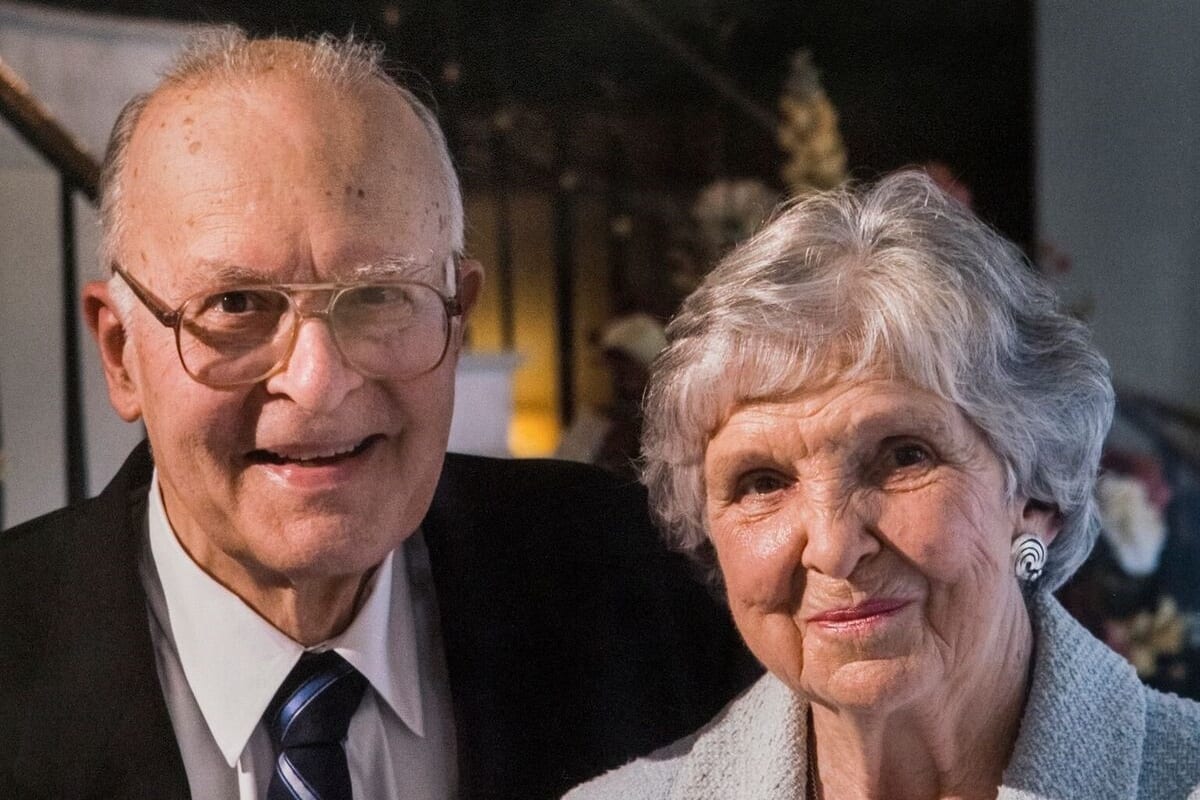It was 1991. I was dressed to impress and sitting at the head of the table, not because I was important, but because I was about to be grilled and the navy jacket would hide my sweat.
The time had come for oral exams after completing seminars for my doctoral degree. Four professors were there to ask anything pertaining to my studies.
One was James Leo Garrett. Garrett, who passed away in February, was an influential theologian among Southern Baptists. I took his seminar on Augustine of Hippo for a minor in historical theology.
Garrett was adept at asking hard questions: unexpected, often painful questions that quickly taught us to read deeper than the words on the page, to connect the dots and see the bigger picture. He was kind and gracious but held students to high academic standards. Occasionally I withered under the weight of questions I was unprepared to answer.
I was determined not to let that happen in my oral exams.
Garrett’s seminar on Augustine haunted me. I reviewed every paper written. I re-read Brown’s Augustine of Hippo, as well as Augustine’s works, including the Confessions and the City of God. I picked topics that we discussed, even if spontaneously. I marked, highlighted, made notes on predestination, apologetics and the nature of God.
Garrett would have only 30 minutes of my two hours in purgatory, but it was his time I most feared.
The day came. I stumbled a bit on some questions but was mostly able to recover with the occasional astute reference of some key source, by which I impressed even myself, and some good old fashioned improvising. Not bad. Thirty minutes to go.
Then Dr. James Leo Garrett turned to me and asked his first question, “According to our syllabus, what was the main purpose of the seminar?”
Crickets. Tumble weeds. Beads of sweat. What? He’s asking me about the syllabus? Did he not want to bask in my expertise on Augustine’s dualism? To engage me in a lofty discussion of The City of God?
But he asked the most basic question – one that seemed trivial, inconsequential, mundane. Ordinary … practical … essential.
Oh.
And there it was. For all that preparation, I never bothered to review the seminar’s syllabus. I heard myself say the three words that I had managed not to mumble even once in the last two hours, “I don’t know.”
He continued for another 10 minutes. Another question from the syllabus, then another.
“What were the main objectives of the seminar? Do you think the content reflects the goals of the seminar?” Each time I muttered, “I don’t know.” “I don’t recall.” Or, “I’m not sure.”
After a while, mercifully, he moved on to questions on the material, and soon it was over. But I learned my lesson, with no doubt it was Garrett’s intention all along. I am grateful to Dr. Garrett, not only for schooling me in Augustine, but for making me sit through 10 of the most uncomfortable minutes of my life. It is a lesson I never forgot.
Sometimes the simplest question to answer is the hardest one. Why are you doing this in the first place? At the end, will you have achieved your purpose? How will you know?
What good is all the theology, the practice of ministry, life as a Christian, if we forget why we are doing it in the first place? Review the basics, rehearse your purpose, reassess your goals. Make sure, when you get to the end, you can answer these questions, “Why did I do this in the first place, and did I accomplish what I started out to do?”
That’s a reminder for all of us, not just nervous doctoral candidates. It’s a question on which we should all reflect.
God has a syllabus for us, the Bible. His purpose is there: to live for Christ and win the lost. Let’s be like Paul, who never lost sight of the purpose, “Brothers and sisters, I do not consider myself to have taken hold of it. But one thing I do: Forgetting what is behind and reaching forward to what is ahead, I pursue as my goal the prize promised by God’s heavenly call in Christ Jesus” (Philippians 3:13-14).
At the end, you’ll hear Him say, “Well done, good and faithful servant! You were faithful over a few things; I will put you in charge of many things. Share your master’s joy” (Matthew 25:23).
Not because you lived the perfect Christian life, led the biggest church or mastered the deepest doctrines, but because you never forgot why you were here in the first place.
(EDITOR’S NOTE – Bob Weathers, Ph.D., is pastor of the First Baptist Church of Shallotte and an adjunct professor of philosophy for Liberty University Online. He blogs at bobweathers.net.)

